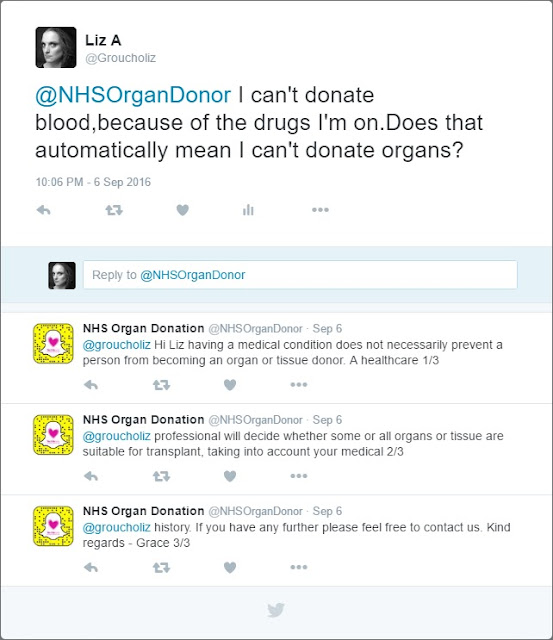Last year, as you may remember - terrorists launched a series of attacks in Paris, most notably at the Bataclan night club. One of the people killed (and the only British victim) was Nick, who I knew during sixth form. I don't remember the last time I saw him, but I do remember it was at a gig.
Outside a few close friends and immediate family, it's not something I've really talked about. At the time, I was totally lost in incomprehension as to how this could happen. I felt (and still do feel) overwhelmingly sad for his family, as they don't get to watch him get old. I was overwhelmingly angry that somebody has taken away his right to carry on loving, carrying on getting drunk with his mates. They've taken away any possibility of him settling down with somebody, or becoming a father. They've taken away his opportunity to travel and see more of the world. I don't get how somebody thought that it was acceptable to do this. I don't get it. I just don't get it. Never will do.
The day after was horrible; finding out through Facebook that he had died, before it was officially announced. I phoned a family friend who knew him (and used to go out with somebody in the music industry) to tell her. Her first comment was: "the merch guy?" So she knew, but didn't know that she knew him. The Monday after, travelling on the Tube and seeing his face on every copy of the Metro all the way down the carriage, nearly had me in minor hysterics. Yes, everybody will die at some point - but not like that.
Others before me have observed that language is all well and good, but when you really need it to explain your deepest widest thoughts, it betrays you and doesn't give you the words you need to explain exactly what you mean. (The film Iris has a brilliant quotation to that effect, which I cannot find for love nor money). But that was the case for me. The best I could come up with as an explanation was: quelqu'un que j'ai connu quand j'étais écolière a été tué chez le Bataclan (il y a une an) The incomprehension was so deep that I could only really explain what had happened in French.
I knew that the run up to the first anniversary was going to be rubbish. I think I had at least three occasions of crying in the loos at work. (Trump being elected didn't help). I went away specifically to avoid the news reports of the commemorations - and then messed it up at the service station we stopped at, by walking past the TV news at entirely the wrong moment.
One year on, the the shock has gone, the immediate pain has gone. The sadness for his family is still there; the anger that people thought that it was OK to kill is still there - and my goodness is there a fear that Brexit and Trump are walking us into the same mistakes and increasing the risk of another terrorist attack.
I still don't get it. But at least I can now speak about it in English.





